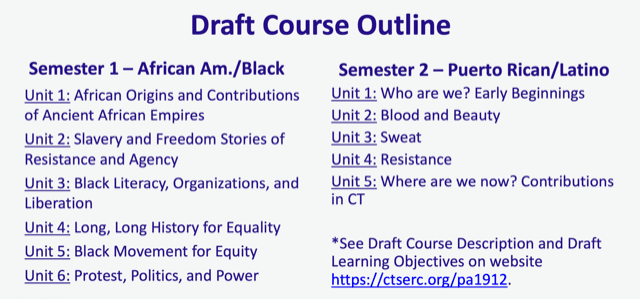Connecticut Gov. Ned Lamont (D) announced Wednesday his state is the first in the nation to require high schools to offer black and Latino studies courses.
“Increasing the diversity of what we teach is critical to providing students with a better understanding of who we are as a society and where we are going,” Lamont said in a statement.
He said the addition of the course will benefit black and Latino students, as well as those of every background.
“This is a step that is long overdue, and I applaud the work of the General Assembly, State Board of Education, and everyone at the State Education Resource Center whose collaborative work helped get this done,” he added.
Connecticut Education Commissioner Miguel Cardona said the course is added because “identities matter,” explaining that 27 percent of the state’s students are identifying as Hispanic and 13 percent as black.
He continued:
This curriculum acknowledges that by connecting the story of people of color in the U.S. to the larger story of American history. The fact is that more inclusive, culturally relevant content in classrooms leads to greater student engagement and better outcomes for all.
Lamont signed Public Act 19-12 in June of last year, which orders all regional and local boards of education to include an elective course in black and Latino studies in all high school curricula. All high schools are required to offer the course beginning in the fall of 2022.
The draft course outline of the year-long course shows the content to be covered in each of two semesters:
“I am excited to see implementation of this bipartisan legislation that will give students a more realistic view of their heritage and the many accomplishments of their ancestors,” said State Representative Bobby Sanchez (D).
He anticipates the curriculum for the course “will lead to better racial relations in our communities and a more inclusive state for our children and theirs.”
The leaders said black and Latino students signed up to speak at public hearings about the curriculum requirement last year, complaining that current history courses fail to highlight the accomplishments of their ancestors.
“Our nation is at a point where we must change the one-sided narrative of how we view history,” State Representative Bobby Gibson (D) said. “Racism stems from the lack of knowledge and respect for one another. Perhaps if our children grew up knowing more about the amazing accomplishments of our people, the actions of this past summer would not have had to happen.”


COMMENTS
Please let us know if you're having issues with commenting.